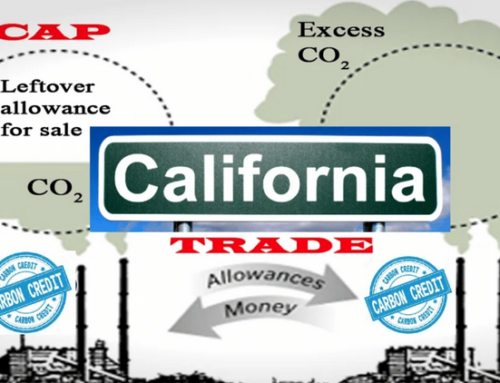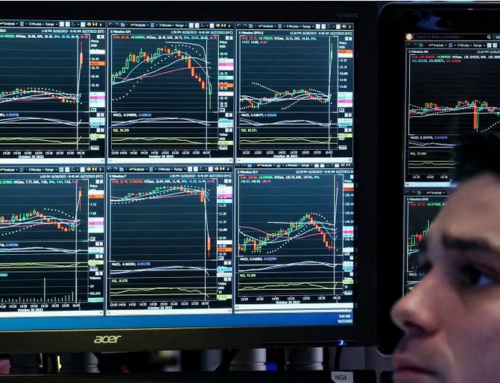By Valerie Gardner
BlackRock, an asset manager with over $5 trillion in assets, doesn’t think so. According to Ben Moshinsky of Business Insider, BlackRock has issued a report warning investors that “Climate change is going to move a huge amount of money and not enough people are paying attention.1”
For a group that holds major investments in various fossil fuel companies around the world, this is an eyebrow-raising pronoucement. After all, even with all of the growth in renewables in recent years, over 80% of the world’s energy is still generated by fossil fuels.
The question is compelling because in late 2015, the leaders of nearly every nation on the planet came together in Paris, recognized the enormous threat posed to humanity by climate change and agreed to work towards limiting carbon emissions to prevent warming greater than 2 degrees Celsius.2
After all, it can’t hurt to consider one’s risks. The world has already seen at 1.5 degrees of temperature rise, with many alarming and quite costly increases in extreme weather events, so efforts to mitigate climate change seem both quite wise and entirely inevitable. So, what are the risks investors face?
Aside from the obvious dangers presented to individuals and their physical property by the increasingly extreme and eratic weather conditions such as hurricanes, floods, heat waves, droughts, forest fires and sea surges, there are several other major categories of risk posed by climate change to portfolios.
Increasingly, as the frequency of billion-dollar events increase, so does the likelihood that the U.S. government will make regulatory changes that impose additional costs on the processing or use of fossil fuels so as to reduce carbon emissions such as a carbon tax or carbon capture and sequestration requirements. Many states and regions, including Europe, California and the U.S. Northeast, have already begun to implement frameworks.
Depending upon how quickly such price mechanisms are enacted, these could force fairly rapid shifts in the market away from those types of fossil fuels that become increasingly uncompetitive. Such as coal. From a short-term perspective, these could be painful to investors even though from a longer-term perspective, they strive to preserve value and profits and reduce the impact of catastrophic events.
In the absence of federal government action, many investors are nevertheless moving away from fossil fuels either because they are excited about the opportunities provided by growing demand for clean energy or because they dislike the risks — planetary and financial — associated with fossil fuels. An entire divestment movement has risen up in anger over regulatory obstructions and lack of moral resolve within the industry to mitigate the extreme threats to humanity. When the Rockerfeller Family Fund, which itself manages funds for the heirs of Exxon’s founder, announced their intention to divest from fossil fuels, they accused ExxonMobil of misleading the public about climate change risks.3
ExxonMobil is not alone. As an industry, fossil fuel companies have largely denied the science behind climate change (even though first alerted to the problem by their own scientists4), obstructed efforts to legislate solutions, and have not adjusted or adapted their business models to scenarios in which burning fossil fuels is no longer permitted.
This poses risks to investors who hold their securities because the company valuations are based upon balance sheets and projected revenues from what many analysts increasingly consider “stranded” assets: fossil reserves that will not be put to market because using them will be too expensive in a carbon-free economy. The reset in market value when such assets are officially “stranded” would likely wipe out a sizeable portion of the value of investor holdings.
The risks are obvious when the range of possibilities for future regulation of resources that are doing damage to the planet along with legal ramifications for corporations which have falsified securities reports to mislead investors is quite large. In a world wracked with climate damages and striving to do everything to mitigate temperature rise, not only will investors see increasing numbers of investors divesting from fossil fuels but both litigation for climate liability and prohibitions on the use of fossil fuels for energy are entirely possible.
1. Business Insider, BlackRock: Climate change is going to move a huge amount of money and not enough people are paying attention, Ben Moshinsky, September 7, 2016.
2. NPR, So What Exactly Is In The Paris Climate Accord? by Camila Domonoske, published December 2015 and updated June 1, 2017
3. Reuters Business News, Rockefeller Family Fund hits Exxon, divests from fossil fuels, by Terry Wade and Anna Driver, March 23, 2016.
4. Inside Climate, Exxon: The Road Not Taken: Exxon’s Own Research Confirmed Fossil Fuels’ Role in Global Warming Decades Ago,” by Neela Banerjee, Lisa Song and David Hasemey, September 16, 2015.










Leave A Comment